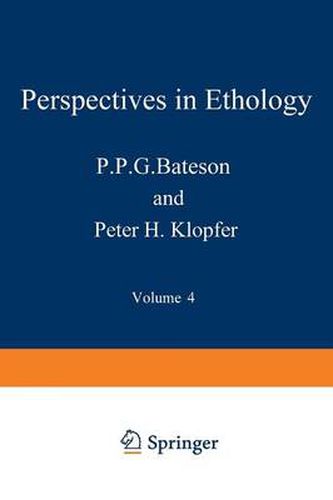Readings Newsletter
Become a Readings Member to make your shopping experience even easier.
Sign in or sign up for free!
You’re not far away from qualifying for FREE standard shipping within Australia
You’ve qualified for FREE standard shipping within Australia
The cart is loading…






This title is printed to order. This book may have been self-published. If so, we cannot guarantee the quality of the content. In the main most books will have gone through the editing process however some may not. We therefore suggest that you be aware of this before ordering this book. If in doubt check either the author or publisher’s details as we are unable to accept any returns unless they are faulty. Please contact us if you have any questions.
One of the attractive features of the great classical ethologists was their readiness to ask different kinds of questions about behavior - and to do so without muddling the answers. Niko Tinbergen, for instance, was interested in the evolution of behavior. But he also had interests in the present-day sur vival value of a behavior pattern and in the mechanisms that control it from moment to moment. Broad as his interests were, he clearly separated out the problems and recognized that questions about the history, function, control, and development of behavior require distinct approaches - even though the answers to one type of question may aid in finding answers to another. The open-minded (and clear-headed) style of ethologists like Tinbergen was based on a recognition that there are diverse ways of usefully con ducting research on behavior. This consciousness has been partially sub merged in recent years by new waves of narrowly focused enthusiasm. For instance, the study of the behavior of whole animals without recourse to lower levels of analysis, and the treatment of sociobiological theories as ex planation for how individuals develop, has meant that the relatively fragile plants of neuroethology and behavioral ontogeny have almost disappeared under the flood.
$9.00 standard shipping within Australia
FREE standard shipping within Australia for orders over $100.00
Express & International shipping calculated at checkout
This title is printed to order. This book may have been self-published. If so, we cannot guarantee the quality of the content. In the main most books will have gone through the editing process however some may not. We therefore suggest that you be aware of this before ordering this book. If in doubt check either the author or publisher’s details as we are unable to accept any returns unless they are faulty. Please contact us if you have any questions.
One of the attractive features of the great classical ethologists was their readiness to ask different kinds of questions about behavior - and to do so without muddling the answers. Niko Tinbergen, for instance, was interested in the evolution of behavior. But he also had interests in the present-day sur vival value of a behavior pattern and in the mechanisms that control it from moment to moment. Broad as his interests were, he clearly separated out the problems and recognized that questions about the history, function, control, and development of behavior require distinct approaches - even though the answers to one type of question may aid in finding answers to another. The open-minded (and clear-headed) style of ethologists like Tinbergen was based on a recognition that there are diverse ways of usefully con ducting research on behavior. This consciousness has been partially sub merged in recent years by new waves of narrowly focused enthusiasm. For instance, the study of the behavior of whole animals without recourse to lower levels of analysis, and the treatment of sociobiological theories as ex planation for how individuals develop, has meant that the relatively fragile plants of neuroethology and behavioral ontogeny have almost disappeared under the flood.